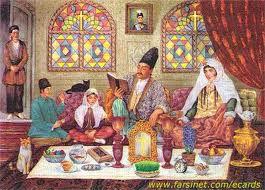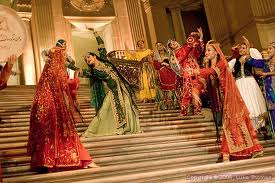This week we’re talking about . I invited several influencers (for who is the true judge of influence?) to help shed some light on this esoteric topic, and the thoughts are provocative and inspiring. Thanks to contributors and , and I appreciate today’s thoughts via , , and . The purpose of this is to provide opportunity for opinions on a theme to be shared.
Ivonne Vazquez owns , and she is a contributor to as well as her recently re-launched blog:
Here is what I think about influence, but particularly, online influence. What social media has allowed us to do, very freely, is to impart information at the click of a button. Imparting information, retweeting an article or paraphrasing what someone else has said is not influence, it is an echo and echo’s fade. Tools capturing the effect of the echo – such as Klout track the amplification or the fading of the echo…but it is not influence.
defines Influence 1: to affect or alter by indirect or intangible means; 2: to have an effect on the condition or development of…
Influence in its quiet command and confidence, may empower the influencer with the ability to understand and, by one’s actions persuade or sway others into gaining their own understanding of a situation, cause or topic. Conversely, influence has a dark side.
Enter perception. Perception and online influence go hand in hand. If one is perceived to be an expert (whether or not it is quantifiable) then you have influence. In the digital world, the intangibleness of influence is directly related to the fact that perceptions can and do change in the blink of an eye. Be it the posting of a controversial blog topic, a misunderstood tweet, or lack of engagement with one’s followers.
The measurement of online influence, in my opinion, is akin to a dog chasing its tail. The perception is that the tail is within reach, the reality is you’ll make yourself dizzy chasing after it!
****
Shakirah Dawud is a prolific copywriter at and also an editor. She provides further provocation about her thoughts on influence:
To be influenced is to be inclined to a direction due to an outside force. It ranges from immediate physical force to subliminal redirection over time, and from individual counsel to collective peer pressure. Influence is not easily quantifiable, because of its varying degrees, and because it’s often a combination of many rather than only one.
In the social media arena, calculates and reports an individual’s interaction or engagement with other individuals. But the influence of those influencers may very well have come through another influencer of that individual’s opinion.
Klout (wisely) makes no attempt to calculate the degree of influence. Only the people involved know the real dynamic of their relationship, and wise researchers into background would take the numbers from Klout more as a representation of the degree and color of an individual’s presence on social media, rather than his or her power in that arena.
****
Petya Georgieva, is my colleague who from Bulgaria, and she’s highly connected. Here are her thoughts on influence:
Influence is something very powerful. It can change perceptions and behavior manners of a person or a group of people. But not everybody can be influential. Influential people are special, interesting and different – they have a set of abilities such as trustworthy, authority, knowledge in particular field, competency, even charisma; they are successful and authentic, they curate content and interact actively with other people; they are trend-setters and early-adopters, etc.
Finding influencers, as said, is hard work mainly because it requires time and a lot of digging. Hence, the important part of social media strategies is to listen and detect conversations as well as to spot the most interactive and compelling speakers. Working effectively and efficiently with opinion leaders is a great way to build reputation and to strengthen corporate / personal / organizational image. It’s important to highlight that building influence is an on-going, never-ending process.
But… Influence isn’t measurable or at least there isn’t one tool that can measure accurately the power of an influencer. I consider it can be defined thanks to different criteria according to every particular situation. For example, polls may be a good way to check out the change in perceptions for a particular period of time. On the other hand, boost of positive conversations about a brand and decrease in the negative comments, thanks to the interaction with opinion leaders, can be also measured as successful influence.
So most importantly we, as communications specialists, have to define our particular goals, then think how we are going to accomplish them and how networking with influential people in the particular field can support this process. When we finish these three steps, it’s time to define our success indicators, according to how we can measure the effect of positive influence.
Please share your applause for these insights below! Thanks, All!











